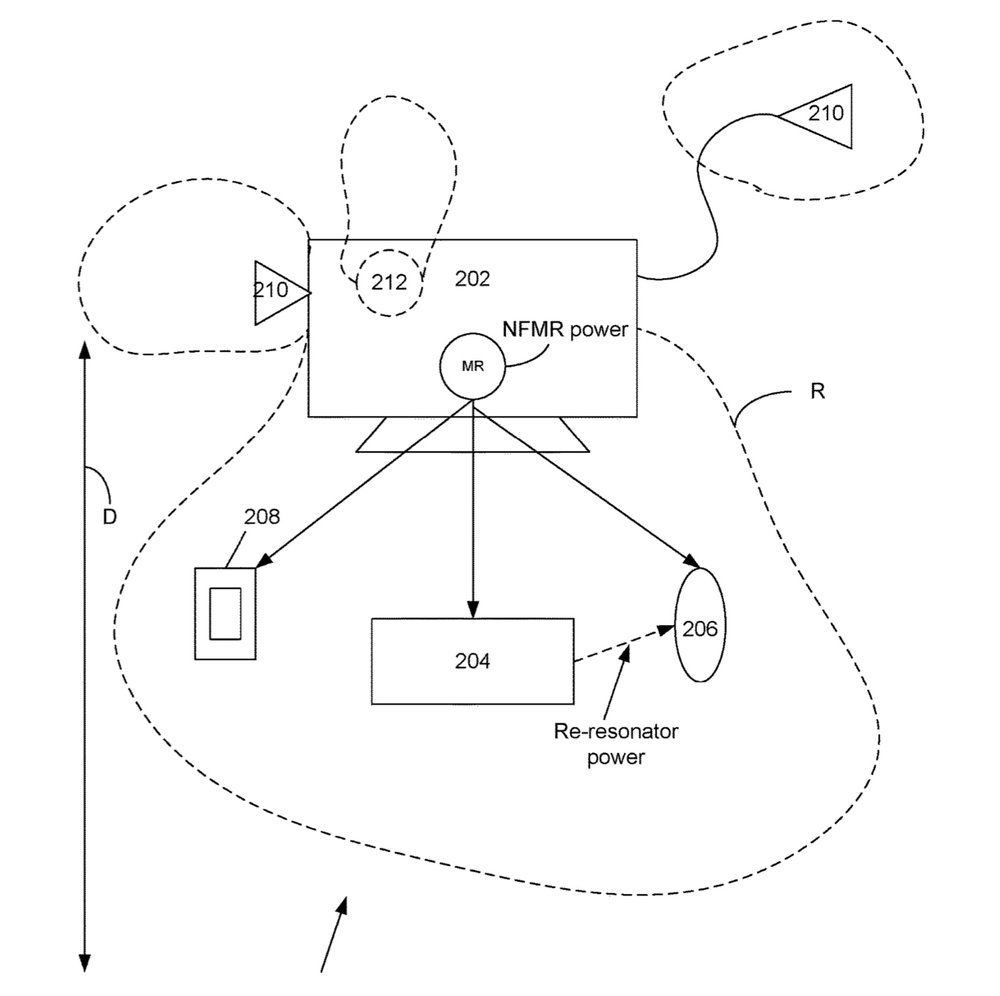Imagine your iMac being Apple to wirelessly charge your iPhone, iPad, Apple Watch, AirPods, Magic Keyboard, Magic Trackpad, and more. It could happen. Apple has been granted a patent (number 10,199,873) involving a desktop computer that could sport a near field magnetic resonance (NFMR) power supply.
NFRM is the transmission of electrical energy without wires as a physical link. Per Apple’s patent, the wireless powered local computing environment — that would be the iMac — includes at least a near field magnetic NFMR power supply arranged to wirelessly provide power to any of a number of “suitably configured” devices. The devices receiving power wirelessly from the NFMR power supply must be located in a region known as the near field that extends no further than a distance of about 3.28 feet.

Obviously, you couldn’t roam the house with this limited distance. However, iPhones and iPads near your Mac could be charged wirelessly. And Magic Trackpads, Magic Keyboards, and Magic Mice would always be charged in this scenario.
Exactly what changes would need to be made to an iMac to make this happen is unclear. It might have to put on a little weight (sorry, Jony Ive). Or Apple could make its NFMR power supply a standalone device. Of course, if the power supply were part of the iMac, it would further integrate the Apple ecosystem and could spur sales of the all-in-one.
Here’s Apple’s summary of the invention: “The wireless powered local computing environment includes at least a near field magnetic resonance (NFMR) power supply arranged to wirelessly provide power to any of a number of suitably configured devices. In the described embodiments, the devices arranged to receive power wirelessly from the NFMR power supply must be located in a region known as the near field that extends no further than a distance D of a few times a characteristic size of the NFMR power supply transmission device. Typically, the distance D can be on the order of 1 meter or so.”
This is the second Apple patent for such technology. The first (number 9,466,989) was filed in 2016.
Of course, Apple files for — and is granted — lots of patents by the U.S. Patent & Trademark Office. Many are for inventions that never see the light of day. However, you never can tell which ones will materialize in a real product.
